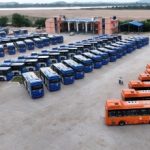Mumbai: As part of its philosophy of sustainable and responsible growth, Vedanta has recycled 282.65 million cubic metres of water in the past four years. Protecting water resources is an integral part of Vedanta’s commitment to sustainable development as the company has taken up 19 water saving projects to reduce water consumption across its businesses.
As we celebrate World Water Day on March 22, Vedanta, which believes in using natural resources prudently, has been investing in new technologies and systems to optimise water consumption.
Recycling and treatment of industrial wastewater has been a key focus area to achieve zero liquid discharge. The company has incorporated efficient water usage practices, invested in state-of-the-art wastewater treatment plants and has completed water risk assessment of its entire operations. The company’s businesses have put in place rainwater harvesting facilities and adopted the 3Rs – Reduce, Reuse, Recycle.
The company’s drinking water and sanitation program are aimed at providing drinking water and purification systems to the local communities, and it has implemented WASH initiatives to develop safe and healthy habits. Vedanta has been helping farmers adopt drip-irrigation, treadle pump, solar powered water pumps and rainwater harvesting structures like percolation tanks to boost irrigation potential and reduce dependency on monsoons for cropping. The company has built several water-related community infrastructures like tube wells, bore wells, ponds, percolation tanks, etc. to help communities access water for household and irrigation purposes.
According to Vedanta Group CEO and Chief Safety Officer Sunil Duggal:“Water plays a very crucial role in the socioeconomic development of a nation and has become an increasingly finite and precious resource. Our approach to water management respects rights over use of water for all stakeholders, which in turn strengthens our social licence to operate. We have a long-term approach to water management that aims to improve our performance, recognize the significance of water and contribute to sustainable water management. We continuously implement technologies and systems across all our operations, to optimise water consumption, enhance energy productivity and safeguard biodiversity. Vedanta has both a water management policy and a water management standard in place which integrate with decision-making processes for all new and existing projects, ensuring that all necessary measures are in place to minimise the water footprint of our projects. At the same time, we strictly follow all norms including zero liquid discharge policy to ensure there is no ground water contamination due to our operations.”
At Hindustan Zinc, water stewardship is one of the most critical elements of the environment conservation strategy as it seeks to reduce usage of fresh water, maintain water quality, and engage with communities to collaboratively manage a shared water resource throughout the mining life cycle. Hindustan Zinc has been declared Water Positive Company based on assurance carried out by a third-party organisation. With this ratio of 2.41, Hindustan Zinc is certified among the top water conserving companies.
Vedanta Aluminium & Power Business integrates smart innovation, best-in-class technology, environmental safeguards, and sustainability-focused operating procedures to ensure a sustainable water future for all. On the back of robust efficiency improvements and conservation initiatives, the Business has reduced freshwater consumption by 3.6 million cubic metres in FY20. While there has been a 4% reduction in freshwater consumption over previous fiscal, water recycling has risen to 16% over the same period.
Cairn Oil & Gas has taken up various initiatives to provide accessibility to safe drinking water to rural communities. It launched Jeevan Amrit project with a focus on providing doorstep access to safe drinking water and has taken up renovation of community water bodies and construction of water tanks, meeting the water requirement of local communities.
At ESL, the percentage of recycling of ETP (Effluent Treatment Plant) treated water has increased from 12% in FY’17-18 to 26 % in FY20-21, while 100 % of the wastewater generated is recirculated into the system after treatment. It has undertaken several measures under Project SWAJAL to make safe drinking water available to local communities.
Nand Ghar, Vedanta’s flagship community development initiative, observed World Water Day to underline the significance of #Swachh water in the lives of thousands of children, mothers, and community members living in the areas, where water is scarce and clean water is a luxury. The day also highlights the necessary improvement for access to water, hygiene facilities, and sanitation in the country. Nand Ghars have provided access to clean water and sanitation facilities to its beneficiaries and used nudges for positive behavioural changes.






